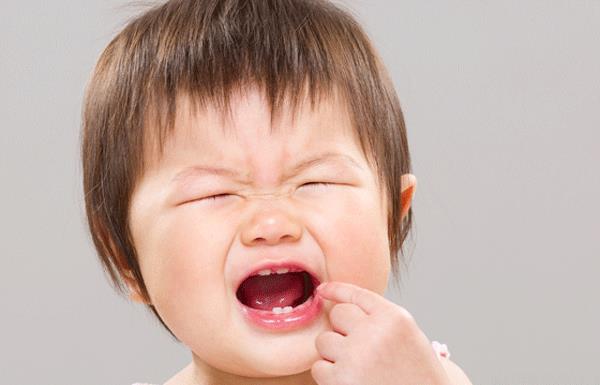After a fall, a child's teeth can be damaged and cause serious complications. But most parents neglect to ignore this simple problem.
Toddlers practice walking and suddenly stumbles. The child's face and gums are bleeding. Parents should do now?
Dr Tang Kok Siew, a consultant at the Department of Pediatric Dentistry at National University Hospital Singapore, said mothers should calm down and check if there are any serious injuries.
If you suspect a serious head injury or other urgent bodily injury, go to the emergency department of the hospital.
The most common damage to the bleeding gums after a fall is to the root, and fractures to the gums or surrounding soft tissue.

Baby teeth are very susceptible to damage when they fall
What to do to stop bleeding?
To prevent bleeding, use a damp cloth or gauze over the injured part. Then take your child to the nearest dental clinic for proper examination and treatment.
Once damaged, there may be pain in the gum area around the teeth and this is not visible from the outside. This is caused by the impact around the root of the tooth, causing either a concussion, a loose tooth or a broken bone.
That's why any slight pressure, such as lightly touching or biting your teeth together, can cause discomfort, explains Dr. Tang.
The aches and pains can last for a few days, so try to offer your baby soft foods to avoid further pain.
But what if the tooth is chipped or turns black after the injury?
If there are chipping or damaged teeth, the dentist will assess whether any nerve treatment is needed. Sometimes the affected teeth need to be removed.
An injured tooth may darken in the next few weeks or months and go unnoticed too soon after the injury.
If your teeth have turned black after a few hours don't panic. A discolored damaged tooth can be due to several reasons, such as the breakdown of blood vessels in the tooth, causing the tooth to "die".
Again, visit the dentist for a diagnosis and advice on possible treatment options. Occasionally, a dark, asymptomatic tooth may persist over the years and deflect the pathway of the next tooth permanently.
That is why it is important to follow up with the dentist regularly after a dental injury has occurred to control possible future complications.












